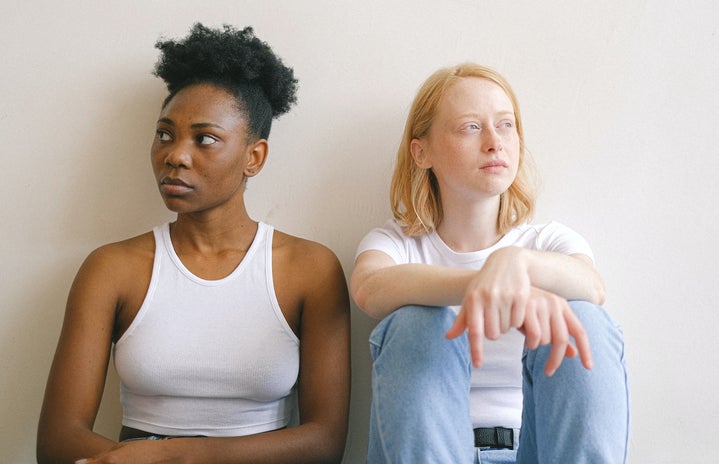Though the most recent and prominent news in American politics has been the announcement of President-Elect Joe Biden as the 46th American president and the first female Black and South Asian Vice President-Elect Kamala Harris, the confirmation of Justice Amy Coney Barrett on October 26, 2020 was also a monumental turning point in American politics. Justice Barrett holds beliefs concerning abortion and other women’s issues, creating some anxiety among young college-aged women in regards to the potential restriction of their sexual health and wellbeing. I decided to ask a series of questions to an anonymous group of 24, college-aged women at UMass Amherst to understand how different female-identifying individuals are feeling about Justice Barrett’s confirmation in regards to their access to birth control and/or abortion.

Some Demographics
Among the 24 women interviewed, all of the participants ranged from ages 18 to 22. The majority of the students were 19 and 20 years of age. 71% of the women currently use a form of birth control, of which an overwhelming majority use birth control pills (83.3%). The other birth control methods of choice were IUDs (intrauterine devices, 11.1%) and miscellaneous methods (such as condoms, diaphragms, cervical caps, and sponges, 5.6%). Women began using birth control between the ages of 13 and 21, with a majority of women beginning use at 17 and 18 years of age (55% of the participants).
On Birth Control
When a student who is not currently using birth control was asked to consider getting on birth control as soon as possible, 70% of participants said they would and 10% said they might. When all women were asked if they would recommend a friend who is not currently on birth control to get on birth control as soon as possible, 37.5% said yes and 50% said maybe. Participants were then asked if they plan to switch to a more long-term form of birth control (i.e., an IUD or Implanon which lasts 3-10 years) if they currently use birth control that needs to be refilled periodically (like birth control pills, birth control patches, NuvaRing) or reinforced (i.e., hormone shots that are done every three months). 90% of participants said they would not change their birth control from “short-term” to a “long-term” method. Also, when asked if they would recommend to a friend that she should switch to a long-term contraceptive, 62.5% of participants said they might and only 12.5% said they definitely would. These numbers demonstrate that there is a slight urgency, given the political climate, to get on birth control as soon as possible if a woman is not already using birth control. However, there exists less concern that different forms of contraception will be banned in contrast to others. The slight hesitation in getting on birth control or recommending it to a friend likely comes from not knowing if access to birth control will be restricted or become harder to access with Judge Barrett in office and other like-minded officials operating in the U.S. government. Only 45.8% of participants felt very concerned that access to birth control methods will become unavailable or difficult to access, while 12.5% did not have any concerns about access to contraceptive methods in the future.
On Abortion
Of the 24 participants, 87.5% of college women were very concerned or moderately concerned about abortions becoming unavailable or difficult to access in the future. When asked what might happen if access to abortion and/or contraceptive methods could be reduced, one student said, “It scares me to think that women might have to get unsafe procedures done if access to abortion is taken away.” In addition, many women fear the overturn of Roe v. Wade. Only 8.3% of students did not feel concerned about the reduction of access to abortions at all. One student said, “I am pro-life, so I’m glad [Barrett] got confirmed. I think access to birth control is a good thing, but I also think abortion is wrong.”
On The Impact of the Supreme Court on Reproductive Rights
When asked to rate how Supreme Court decisions will impact the reproductive rights of women in the future from very positive to very negatively, 86.3% said that they fear Supreme Court decisions will impact women’s reproductive rights very negatively or negatively. 79.2% of women strongly agreed that Supreme Court decisions will impact marginalized women much more than white women.
On Justice Barrett
66.7% of college-aged women expressed that they were very stressed about Justice Barrett’s confirmation. When asked about the likelihood that Justice Barrett could infringe upon their reproductive rights, 12.5% of women said possibly, 37.5% likely, and 41.7% said definitely. One student expressed that “. . . Women without access to private healthcare will suffer the most, as many rely on organizations like Planned Parenthood for a more affordable option for not only birth control, but routine exams and reproductive healthcare.” Another student said, “Birth control is irrelevant to the human rights issue because there is no termination of an embryo or fetus. A lot of women are really excited for [Barrett] to be on the court! She is really qualified and 51% of American women are pro-life, so it’s great news! It is also great to have another woman on the court!”

The reaction to Justice Barrett’s confirmation is clearly mixed, but there is a lot to unpack concerning the rights of women to have access to birth control methods and abortions. Different forms of birth control work better than others for some women, so the restriction of access to certain contraceptives would be very bad for women who use them. There is much more to discuss, but it is important to have these conversations in our circles and get people thinking about the rights of the American woman, whatever her background or story may be.


